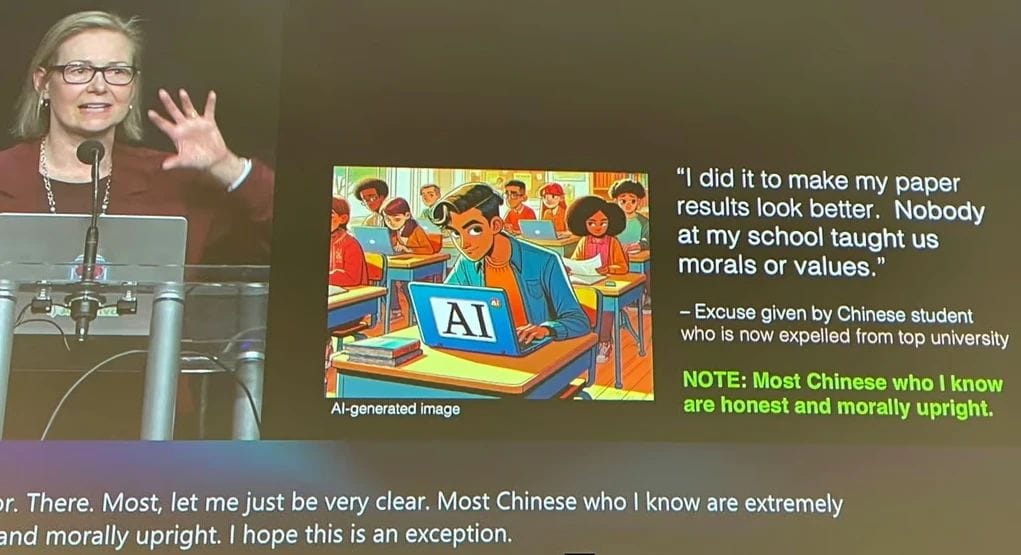
An American scientist from the Massachusetts Institute of Technology (MIT) has drawn criticism for remarks made during a keynote speech at a major AI conference last week, where she referenced the Chinese nationality of a student in an example of academic misconduct.
Rosalind Picard, a professor at the MIT Media Lab specializing in health sciences and technology, delivered her speech at NeurIPS 2024, the 38th annual conference on neural information processing systems, held in Vancouver, Canada. During her presentation on Friday, Picard shared a story about a Chinese student who had been expelled for academic dishonesty. She stated that the student, who had attended a prominent university in China, defended the use of AI for completing an assignment by saying, “I did it to make my paper results look better. Nobody at my school taught us morals or values.”
“I was stunned to hear that this was considered acceptable behavior there,” Picard remarked. She also added, “Most Chinese people I know are incredibly honest and uphold strong moral values.”
During the Q&A session following her speech, a Chinese audience member challenged Picard’s comments, pointing out that this was the only instance in her lecture where nationality was explicitly linked to unethical behavior.
Furong Huang, an associate professor of computer science at the University of Maryland, expressed dismay at Picard’s remarks on social media. Huang described the comments as “deeply troubling and reflective of a racist perspective on Chinese scholars,” stating that they were both inappropriate and disheartening. Huang further noted that mentioning the student’s nationality was unnecessary in discussing academic misconduct and criticized Picard for her choice, arguing that it perpetuated harmful stereotypes about Chinese researchers. “Racism has no place in academia,” Huang wrote, “and incidents like this undermine the values of inclusion and respect that the global research community should uphold.”
In response to the backlash, Picard issued an apology the following day. In a statement published on the MIT Media Lab’s website, she acknowledged that referencing nationality was unnecessary and unrelated to her central point. “I regret including this detail in my presentation,” she said. “It caused unintended negative associations, and I am deeply sorry for the distress this has caused.”
NeurIPS organizers also released a statement condemning the cultural generalization, stating that such remarks “reinforce implicit biases by making generalizations about Chinese scholars” and are not aligned with the values of the conference.
Rosalind Picard is a prominent scientist, inventor, entrepreneur, and author, best known for her book Affective Computing, which introduced the concept of equipping computers with emotional intelligence for applications in technologies like voice assistants, robots, and interactive agents. Her keynote presentation was titled “How to Optimize What Matters Most?”


